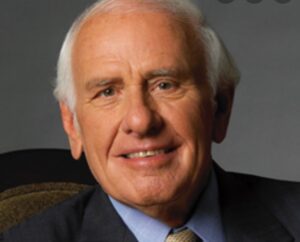
The other day, I ran into a friend I hadn’t seen in a while at the grocery store. When I first spotted her, I sunk a little lower into my PPE, busied myself with the taco spices and prayed she wouldn’t see me.
“Hey you!” Too late.
After we asked about each other’s kids, she rattled off a list of people who had recently let her down and how hurt she was that another relationship had ended. She wrapped up with we should totally get together. Every time I see her, she scoots in close so her rain cloud can soak me too. On the surface, she doesn’t appear to have so much to gripe about: a healthy, supportive family, a successful career, plus she’s objectively gorgeous. Over the years, I have listened, offered help and made efforts to connect her with resources when she asked. This last time, I noticed she waited for me to stop talking then proceeded to complain.
Let me just say I have no objection to sharing hard things with friends to gain clarity or to have a friend bear witness to our pain. We all go through hard seasons. I am referring to the incessant kvetching that seems more like a favorite pastime.
Over the years, I have felt bad for not wanting to spend time with her, like I was a terrible person. I have made the obligatory noises about hanging out and then not made plans. This time, to my surprise, I did not. Side bar—I now experience as repugnant the very behavior I used to indulge in regularly. I was that person who had a laundry list of complaints, yet had it pretty good.
It’s not that I no longer have sympathy for people’s problems, I do. I know what it’s like to feel stuck and it bums me out when any friend of mine feels this way. But mercifully, I now realize the difference between sharing news of a difficult event and the choice to suffer over it interminably.
Why do people complain so much? Obviously, some of us have legitimate grievances, especially those hit hardest by the pandemic. My complaints did not rise to that level. My dissatisfaction stemmed from feeling out of control of my life. I wasn’t spending my time and energy the way I wanted. I had disconnected from myself and wasn’t meeting my own needs. Bottom line, I didn’t yet have the courage to put myself out there and start writing already. “Unexpressed creativity turns malignant,” Brene Brown says. That was totally me.
According to Psychology Today, there are three types of complainers.
Chronic complainers dwell on setbacks, not progress. The habit of complaining is literally wired into their brain. It’s possible to re-wire it for positivity, but the chronic complainer would have to buy into the idea. Not bloody likely.
Venters seek validation through empathy and attention, but not a solution to the problem. Venters as well as chronic complainers can dampen both the mood of the listener and, ironically, the complainer herself. ( This was my jam.)
Instrumental complainers focus on the impact of the problem with the person involved, the importance of change and then ask for cooperation to create a plan for improvement. This makes up about 25% of complaints.
I have noticed that the more I take care of myself, the less I have to complain about. That may seem like easy math, but it’s AP Calculus for me. Over the course of the pandemic, I dropped the roles that didn’t serve me and improved my boundaries. I backed away from friendships that left me feeling bad about myself. I learned to say no and to be grateful for what I have. I realize I deserve a happy, optimistic life including the people in it. That is not to say that if someone has a problem, I won’t listen or help. On the contrary. But if you just want to complain for sport, I am no longer your girl.
Other friends have told me they have had similar experiences during the pandemic. We have “realigned our priorities” as one friend put it, and moved ourselves up the list. Another friend told me she is only in regular touch with a select few as opposed to keeping up with her huge pre-quarantine circle. Many of us are taking better care of ourselves now.

Jim Rohn, a pioneer in personal development once famously said, “You are the average of the five people you spend the most time with.” We are heavily influenced by our relationships. The people we allow into our lives shape our thinking, self-esteem and decisions. According to Rohn, if you aren’t intentional about the people you spend your time with, you won’t gain the continuous personal improvement you are looking for. We often underestimate the importance of the company we keep. These days, I feel pretty good about my choices but we can always do better.

And that’s one reason I signed up for this month’s 28 Day Challenge offered by Caroline de Posada*, www.carolinedeposada.com. My friend Kristin did it during the first few months of the pandemic when time had folded in on itself and motivation for anything had ground to a halt. Being a part of this community breathed new life into her regular routine and made workouts fun. She introduced me to Caro on a 5:30 a.m. run several months ago. We managed to talk despite gasping for air as we chased Kristin. I heard all about Caro’s coaching and her journey to becoming a published author.** But mostly, I enjoyed her positivity and enthusiasm which convinced me that as soon as she was available, I should sign up to have her in my ears every day.

So what have I learned during this month? First, that Caro’s program isn’t about physical fitness, it’s about how we do life. Her CORE principals are communication, organization, resilience and emotional intelligence. From the start, she encourages everyone to get clear on what we want out of the experience. When we get specific about our desired destination, we give our brains exact directions. This gives us the best chance to succeed. Of course, we spent time on healthy eating and exercise, but Caro’s not telling anyone to count calories. It’s about good habits and celebrating progress, not perfection. Her holistic approach makes sense. If we focus only on physical fitness, it would suggest the scale dictates whether we are worthy of a good life. She doesn’t subscribe to that. Instead, she encourages mindfulness and taking responsibility for our choices. We shared nutritious recipes, meditation techniques and some even got families into the act by exercising with their kids. We modeled self-care. After setbacks, we moved forward. We showed up for ourselves and learned to be a kind voice in our own ears.
And that’s why I asked Caro to be this week’s guest on Tell Me All About It on Instagram Live TODAY Friday, February 26, 2021 at noon. If you don’t already, come follow me on @elizabethheise1 and you will get the LIVE notification in your stories. I want Caroline de Posada in my ears every day. Why? Because she is full of optimism and encouragement and, despite being injured for most of this challenge, I have felt happy and hopeful anyway. Her daily affirmations and inspiring stories remind me that I am in control of my actions and my attitude. She suggests I do the hardest thing first so that I can enjoy my day more and not waste time and energy procrastinating. Did I execute the program flawlessly? Nope. But I did learn some excellent tools, like telling myself, I am a woman who makes good choices, in situations where I am usually not a woman who makes good choices (i.e., evening stress snacking). I tackled one small organizing project at a time instead of choking down the whole enchilada at once and feeling overwhelmed.

If you check out her website, you will see that she is a living legacy of personal development. Her late father was renowned motivational speaker and best-selling author, Dr. Joaquim de Posada, who Caro lovingly refers to as someone who truly practiced what he preached. From a young age, she accompanied her father to his presentations and learned how to connect with an audience using humor and storytelling.
But there is a video on her site of a speaking engagement that had me in tears. Both her parents were there—her mother in the audience and her father up on the big screen and in her heart. Caro describes how it was possible for him to have traveled 80% of the time, yet build a strong and loving relationship with Caro. He kept a few simple promises to her. He sent postcards from every country and took her with him once a year to watch him work and witness the lives he impacted. He called her every day, he told her he loved her, and he LISTENED. Despite the miles, he really knew her and she felt seen by him. Relationships thrive when we feel seen, heard and loved. Simple.
Caro’s father was an amazing man, larger than life and she loved him dearly. But the hero of Caro’s story is her mom, Gladys, a hard-working single mother who fostered the relationship she had with her father despite divorce and distance. When Caro asked her mother the reason for her parents’ split, her mom made clear that Caro’s role was to love her dad as a daughter and not concern herself with their divorce. In one fell swoop, she taught Caro boundaries, respect, and integrity.
I am so interested to know what it was like to grow up with people like this. What messages she must have heard. I want to hear it all.
I also want to know how she and her husband Orlando, despite many divorced family members, developed such a healthy marriage.
I have about a million questions for Caro and I hope you will tune in.
When we choose carefully who we let in our ears, we get the distinct feeling it’s all going to be okay, because everyone around us believes it, including ourselves.
Love,
Elizabeth
WRITING PROMPT: Who are the five people you spend the most time with and why? Is there anyone with whom you need to maintain better boundaries? Why?
*Caroline de Posada’s Social Media Links:
https://www.facebook.com/carolinedeposada/
https://www.instagram.com/carolinedeposada/
www.linkedin.com/in/carolinedeposada
https://www.youtube.com/channel/UCoJhoKoocIW6FRhZEVJFJwA?view_as=subscriber
And book:
**Looking Over The Edge: A True Story of Facing Fear, Finding Your Way, And All The Lessons In Between is available on Amazon at https://www.amazon.com/dp/097284791X/ref=cm_sw_r_sms_api_glt_i_406Q5PS8HXZCXG1ASDM8.
Copyright © *2021* *Elizabeth Heise, LLC., All rights reserved.
Our mailing address is:
elizabeth@elizabethheise.com
Want to change how you receive these emails?
You can update your preferences or unsubscribe from this list.